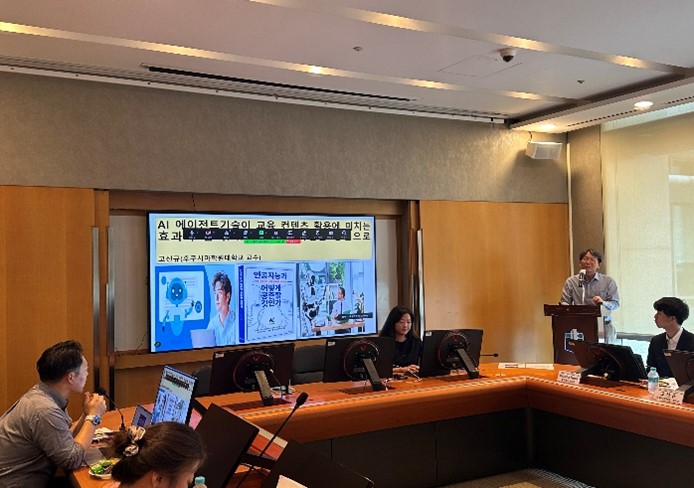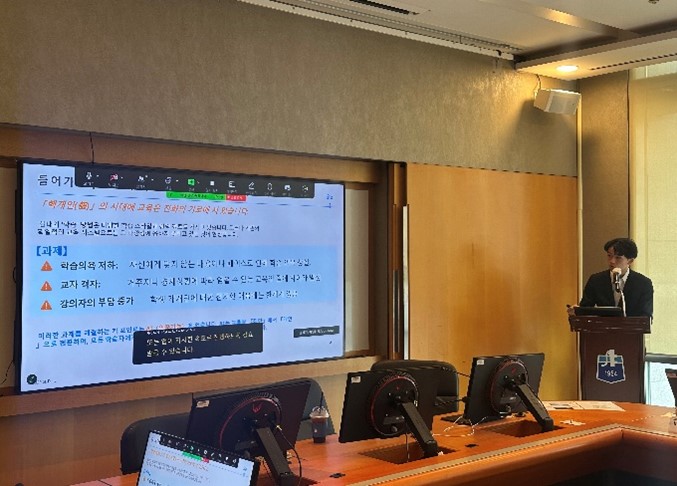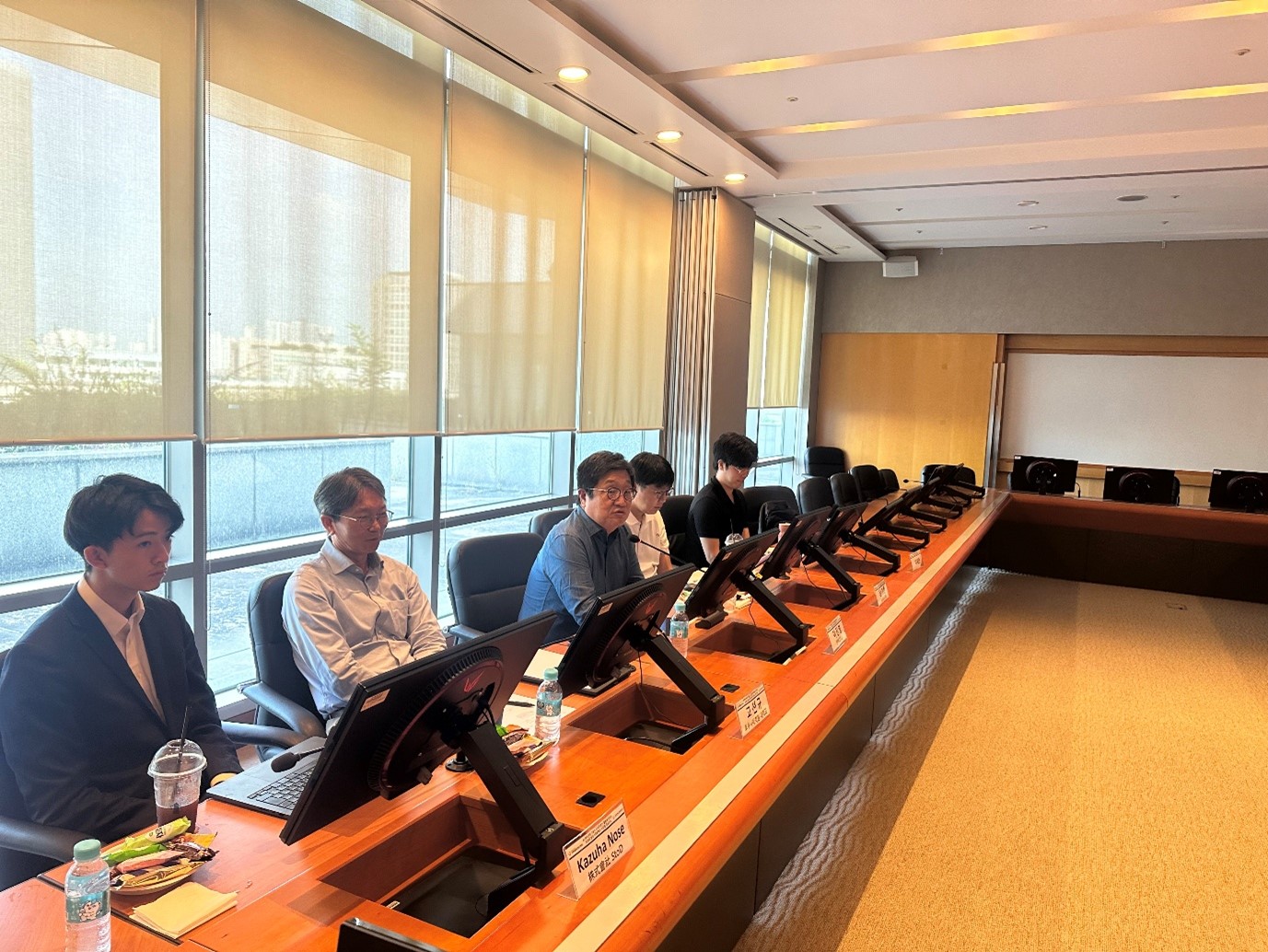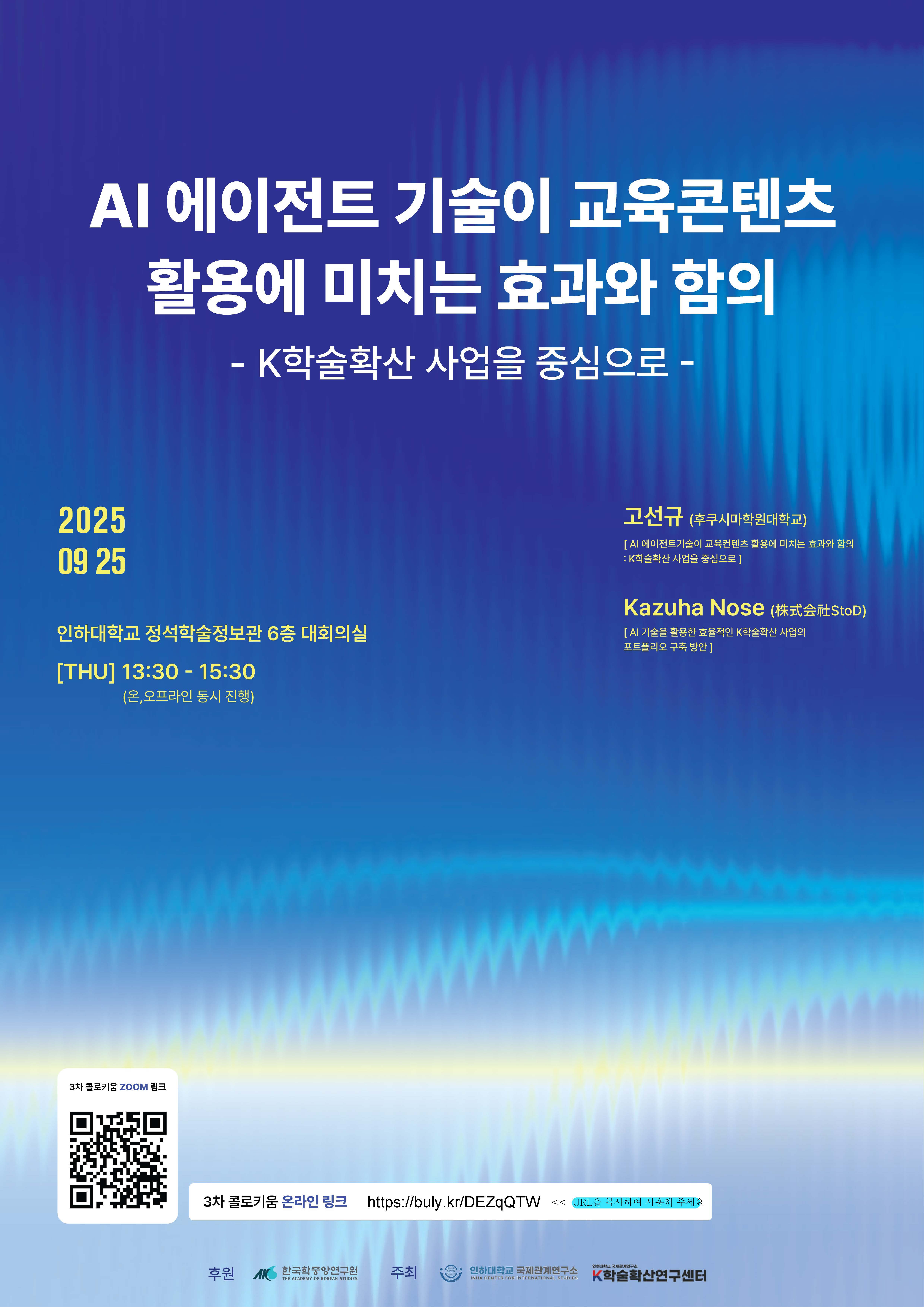Colloquium
Colloquium
2025-26 Inha CIS K-Adademic, 3rd Colloquium
- Created 2025.10.15
- PresenterKazuha Nose
- Views355
The Impact and Implications of AI Agent Technology on the Use of Educational Content: Focusing on the K-Academic Diffusion Project
The K-Academic Diffusion Research Center of the Inha University Institute of International Relations held its 5th-year 3rd Colloquium on Thursday, September 25, at the main conference room of the Jungseok Memorial Library, under the theme “The Impact and Implications of AI Agent Technology on the Use of Educational Content: Focusing on the K-Academic Diffusion Project.”
The colloquium featured presentations by Professor Sun-Kyu Ko (Fukushima Gakuen University, Japan) and Mr. Kazuha Nose (CEO, StoD Co., Ltd.), with Dr. Seung-Jae Lee (Research Professor, Inha University Institute of International Relations) serving as moderator.
Professor Ko emphasized that the educational paradigm is shifting from classroom-based to individualized learning and explained that AI-based “agents” possess the potential to fundamentally transform the productivity and accessibility of learning. He also pointed out that the current K-Academic Diffusion Project’s K-MOOC content structure remains supplier-centered and lacks timely updates. He argued for a transition toward an AI-based personalized system and concluded his presentation by stressing that future AI agent design should consider user experience (UX), data privacy, and customization features.
Following this, Mr. Kazuha Nose, CEO of StoD Co., Ltd., presented a concrete model of an AI-based learning platform centered on his company’s ongoing project, the AI Learning Concierge System “COMPASS.” He explained that the system enables learners, instructors, and universities alike to benefit from AI integration. Learners can build “personalized curricula” that reflect their interests and goals with the support of a 24-hour AI tutor; instructors can reduce administrative workload through automated Q&A and provide more precise guidance using learner data; and universities can reduce dropout rates, enhance brand image, and attract new learners through AI-driven automated promotion. His presentation was supported by real-world application cases from the United States, Switzerland, and Germany.
During the subsequent discussion and Q&A session, Director Jean-Young Lee (Inha University Institute of International Relations), CEO Ki-Hwan Nam (Mirim Media Lab), and Mr. Jae-Yeon Lee (Next Runners) participated as panelists. They engaged in an in-depth discussion on the current state of K-MOOC courses under the K-Academic Diffusion Project and explored ways to enhance their effectiveness.
Through this dialogue, the participants shared valuable insights into how the dissemination of Korean Studies content by the Inha University Institute of International Relations can be further advanced through the application of AI technology. The colloquium provided a meaningful opportunity to exchange ideas on future directions for the K-Academic Diffusion Project and to envision the evolving role of AI in educational content innovation.
 |
 |





